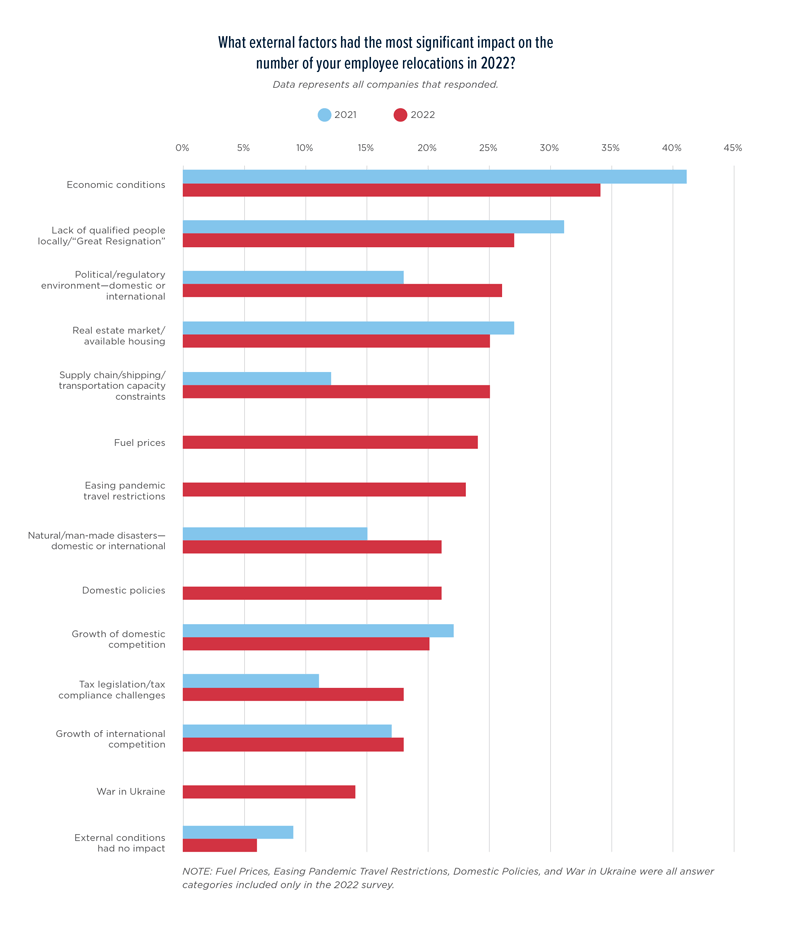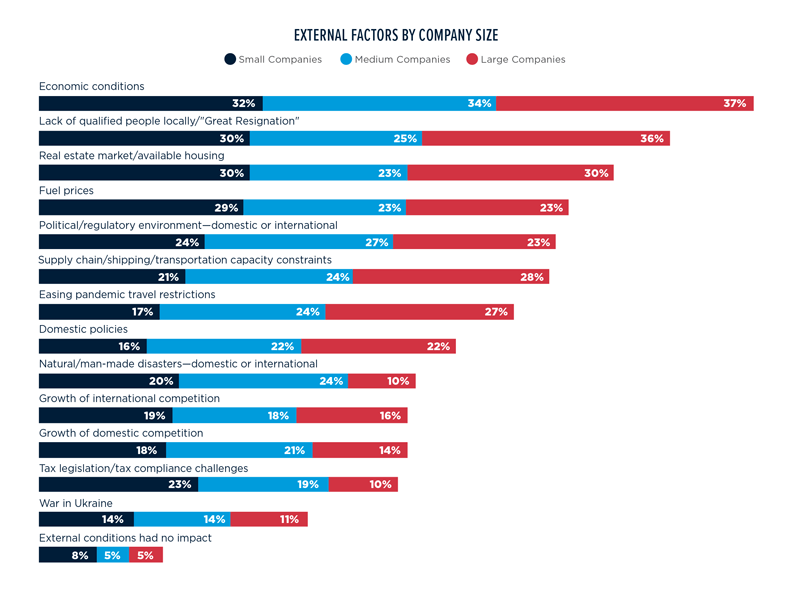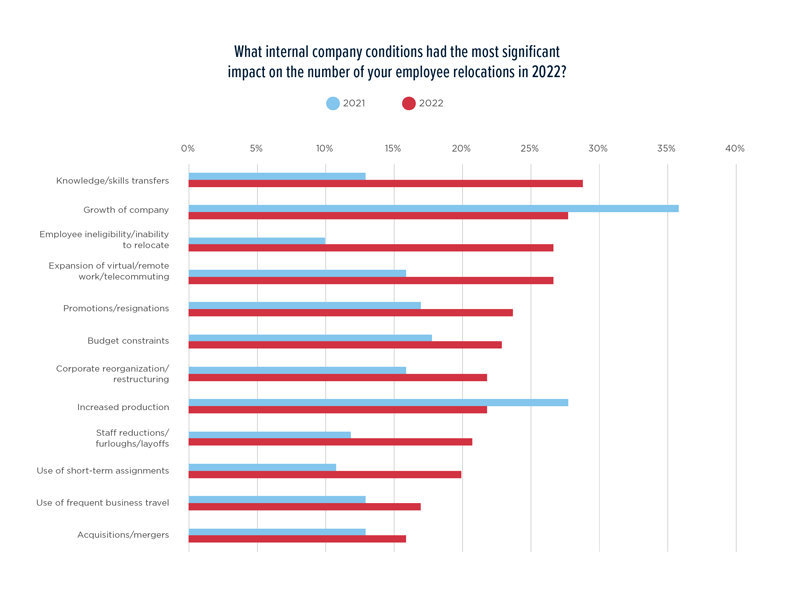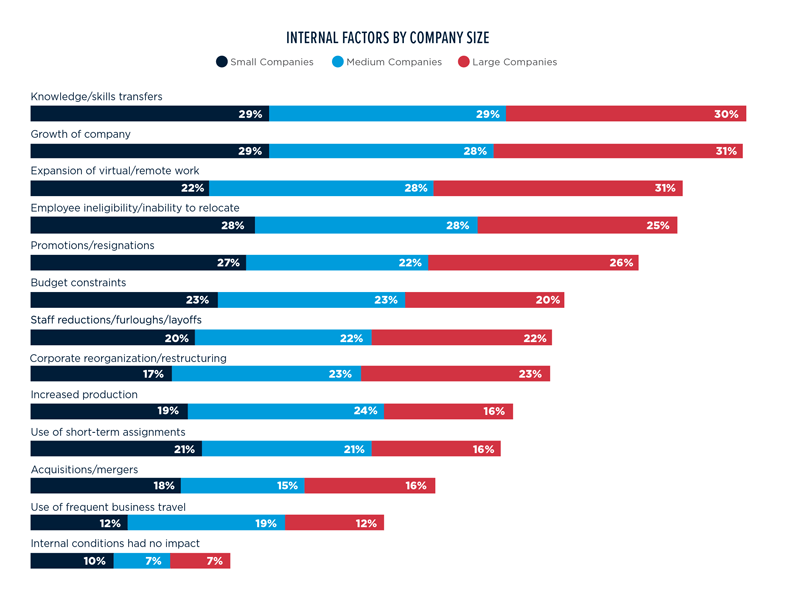FACTORS IMPACTING RELOCATION: EMPLOYERS
External Factors
External factors impacting relocation reinforces our finding that the COVID-19 pandemic is becoming less impactful with time. However, in 2022 and leading into 2023, the global economy takes center stage as the primary challenge to relocations. While 50% of all companies reporting that their overall financial performance increased since 2020, sentiment about the state of the economy was more lukewarm.
Highlights:
- In 2022, 1 in 3 companies (34%) cited economic conditions as the most significant external factor impacting relocation. This is a decrease from 41% in 2021, suggesting economic conditions did improve from pandemic lows overall, even as economic challenges remain.
- Around 1 in 3 companies felt the state of the global economy had improved in 2022, with another 1 in 3 reporting they felt the economy had not changed.
- Only around 1 in 3 companies anticipate that the global economy will improve in 2023, with another 1 in 3 expecting no major changes from 2022-2023.
- The impact of supply chain shipping/shipping capacity and constraints doubled from 2021 to 2022, increasing from impacting only 12% to 25% of companies.
- Tax legislation/tax compliance challenges increased 7 points, from 11% in 2021 to 18% in 2022.
- 27% struggled to find qualified employees locally/felt that The Great Resignation was a significant external impact in 2022, down slightly from 31% in 2021.
- 26% of companies cited changes to political and regulatory environments as an external impact on relocation.
- Real estate continued at a mostly consistent rate, decreasing in impact by about 2 points from 2021, impacting around 25% of companies in 2022.
- Concern for natural/man-made disasters also increased 6%, from 15% in 2021 to 21% in 2022. This is consistent with factors impacting relocation for employees, as well, as safety-related concerns topped reasons employees declined relocations in 2022. For more, see our Factors Impacting Relocation: Employees section of this report.


Internal Factors
Highlights:
- 29% of companies cited knowledge/skill transfers as a major internal impact on relocation in 2022, an increase of 16 points from 2021.
- 27% of companies cited employee ineligibility/inability to relocate as a significant internal factor, an increase of 17% pints (employee ineligibility/inability to relocate was reported by only 10% of companies in 2021). This is a significant increase. In our “Factors Impacting Relocation: Employers” section, we explore this issue in depth and discovered that inability to relocate is likely hinged around financial issues connected to spouse/partner inability to relocate, as well as increasing safety concerns in a time with geopolitical unrest and climate concerns.
- 27% also cited expansion of virtual/remote work/telecommuting, an increase of 11 points from 2021. Increasing normalization of virtual/remote work and telecommuting has created a significantly different set of priorities for employees, who seek voluntary relocation as well as a work/life balance enabled by less time onsite or commuting. Companies are also able to perform more flexible hires, able to rely on local hires rather than relocations. For more, we dive deeper into this topic in our “Employee Mobility and Changing Workplaces” section.
- 28% of companies cited company growth as an impactful factor, a decrease from 2021, reflecting guarded outlooks on the global economy and reverberating effects of economic shifts since 2019.


